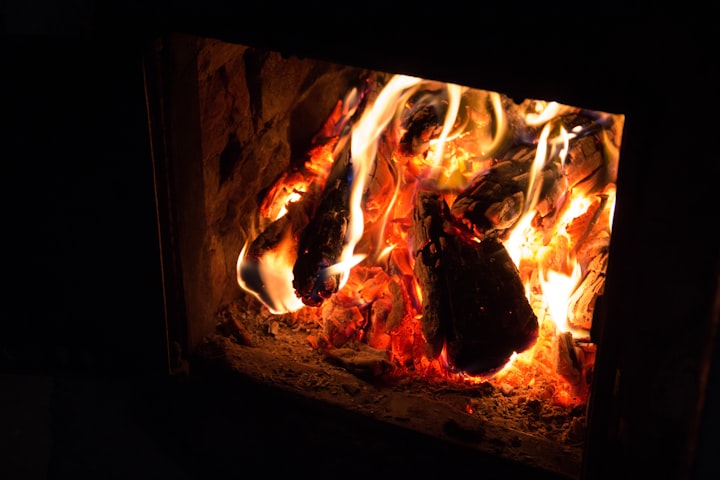COMMUNITY: A SHORT REVIEW
Six seasons and a movie, by Dan Harmon

STORYTELLING RANK: WONDERFUL!
3.5 of 5 stars for overall enjoyment

Many stories grasp the overarching plot, but struggle to maintain the details. I tell people all the time, "It's the details that make the story."
But what if a story had the opposite problem, an issue of focusing too hard on the tiny minute details but struggling with the main plot?
That would be Community.
The story is so invested in the tiny details that if the audience were to pause at any point in the show to look at the background, read the white boards, check the subject lines in emails, find characters in the background, everything would be so perfectly on point. This often times is what gives stories such a strong sense of immersion: the background is always supporting the world the story takes place in. Not a single little detail was forgotten, not a single clip left behind. However: The main plot is so fragile that even a small breeze would shatter it. We'll go into this more in just a moment.
Community is about a group of people attending a four-year community college called Greendale. They start off with their own ambitions, fresh from the world and preparing to enter their next phase of life. An ex-lawyer who faked his law degree attends to get his degree to return to being a laywer, a divorced wife with two kids who now needs to provide for herself and her family without her husband in the picture, a racist wealthy old white man who thinks he's the best thing since sliced bread and who has taken classes for decades without having anything come of it, two 18-year-olds fresh from high school, one an ex-addict and the other an ex-football player who suffered an injury and can no longer play, an autistic pop-culture film junkie trying to convince his father that he doesn't want to take over the family falafel restaurant but takes classes at Greendale anyways, a feminist, rebellious ex-anarchist left with a disbanded group trying to find a good job and move on with her life comprise the main core cast. They fight for a study room until one of them gives a speech that can only be described as a "Jeff Speech," something created within the show itself, declares the group a community, not a study group, which keeps them from fighting and gets them on the path of working together. The queer-and-more Dean makes frequent appearances, plays favorites amongst the students, pits them against each other, and looks for any cause for a celebration (or a costume change). All seven of them take a Spanish class together, which is how they meet, with a teacher that is unhinged-and-more. Their adventures through this wild college span more than six years. We slowly meet the other students attending the school who start off as nothing but background characters, but mix into the group over time like two families blending together seamlessly at a touching wedding.
There is some beautiful parallelism between the audience and the main cast of characters. The characters enter Greendale Community College thinking that it's a college. We, the audience, sit down to watch thinking that this is a show. As the characters go through character arcs and interact with the school, they end up falling in love with Greendale Community College. As an audience member, it's charming. I fell in love with the school and the show quickly as well. But as it progresses, we see some warning signs. They are attending a four-year college, yet interact with characters who have been there for anywhere between one and thirty years regularly attending classes. Nobody in the show has a year they are. Are they freshmen? Seniors? Juniors? That doesn't matter. Shouldn't people be graduating and leaving the college? That doesn't matter, either. By the time the characters realize, by the time we, the audience realize, it's too late, and we've already fallen deeply in love with the college, with the show. Greendale Community College is not a school, it's a prison. Community is not a show, it's just one big overly-meta meme.
The arcs that the characters go through make them actually worse characters overall, not better. By the end of the show, all of the characters are reduced to little more than children, who throw tantrums, act on impulse, have little to no control over their emotions, and no idea how the real world works. This is the Greendale Prison. It creates an environment so different than the real world that its students cannot survive outside of Greendale, and they keep coming back to take more classes, or, just never earn their degree in the first place. Later in the show (season 6), one of the characters says something to the effect of: "You can't kick her out! She's been here for 4 years, she's only 2 years away from earning her 4-year degree!" And even if a character manages to earn their degree from Greendale, they end up coming back as a horrific teacher, anyways. The main plot struggles to progress at all, nobody has a title identifying how long they've been studying or how long they have until graduation and eventually leave the show for better things. This is why I say the plot would fall apart if a breeze too strong came at it. Plot-wise, it's really uninteresting and lacking. Granted, I didn't watch it for the plot and to anyone who wants to watch it, I recommend not watching it with the expectation of a good plot.
Community is extremely meta to the point of making fun of itself as much or more than it parodises other genres. It constantly breaks the 4th wall and isn't afraid to point out every single little flaw that it has, like that one insecure friend who thinks if they call out their flaws before you have the chance to think of their flaws, it'll make you like them more. Unfortunately for us, Community does it very well. They put so much effort into the stupidity of it all and answer the question, "What would it look like if 300 adult nerds played games meant for children?" far too well. Granted, the paintball episodes, the floor is lava episode, the blanket fort episodes, and the Dungeons and Dragons episodes were some of the single greatest content I've seen in years. It both cured my depression and handed it right back to me wearing new clothes that said: "I wish I had 300 adult nerd friends and a massive school to play games meant for children at." And perhaps that is the Greendale Effect: Your problems solved, then handed right back to you dressed in new clothes. Yay!
Community has multiple single episodes that are better than entire T.V. shows, where the episode is the lesson that it's trying to teach. If you don't want spoilers, skip the rest of this paragraph. A good example of this would be the Grifting episode. The characters talked about The Sting within the Grifting episode and explained what The Sting did well as a grift. The episode then did exactly what they said was good about The Sting. There are multiple episodes that have embedded within it the lesson or the thing they were talking about at the start of the episode. Like I said before, it's very meta. I can't recall which other episodes follow this pattern, since we watched Community over several months.
I hysterically laughed and shouted out: "Hell yes!" As many times as I rolled my eyes and groaned. I will forever hear the words "Ass crack bandit" to the tune of "Jukebox Hero." That just lives rent-free in my head now. I loved all the parodies of other T.V. shows and styles embedded into Community, and I loved seeing Community reskinned under a different style as many times as it was.
Overall, I enjoyed Community. It gave me some topics to contemplate and a lot of laughs. Would I watch it again? Absolutely not. But I will fondly look back on the memes it created and many of the running gags have been added to my vocabulary. I will be making a bunch of Community references in the future even if I don't watch it again.
If you like meta shows and you want something nice and easily-digestible, I'd definitely recommend Community. The show does make a lot of mistakes, so be prepared for that, things like: every character has to have sex with every other character, and that's a definite mistake. But if you can just roll your eyes and move on, it's quite enjoyable. With the aforementioned issues and the lacking plot, the storytelling aspect of Community lands it as a "wonderful" story with a 3.5 of 5 stars for my overall enjoyment of it.
About the Creator
Monique Hardt
Monique Hardt is a longtime lover of the fantastical and the impossible, crafting works of both poetry and fictional prose. She began writing books at the age of ten and has been diligently practicing her craft ever since.






Comments (1)
I would say it is a nice review.